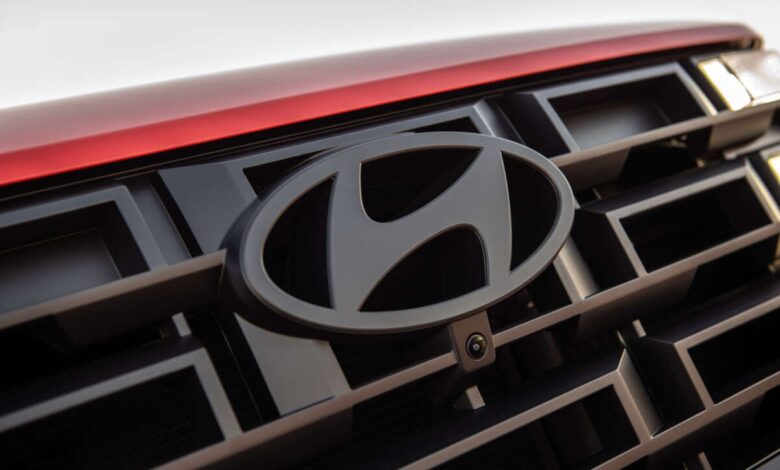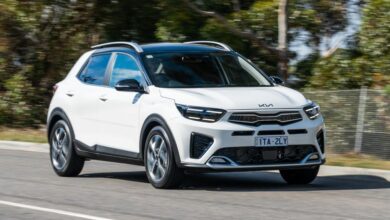Hyundai plans to extend the range of its electric vehicles to over 900 km as an interim solution to full electrification as demand for BEVs slows

Hyundai has announced that it will develop new range-extended electric vehicles to bridge the gap to full electrification, as demand for all-battery electric vehicles slows. The confirmation came as part of its 2024 CEO Investor Day today, where it unveiled a new mid- to long-term strategy called the “Hyundai Way”.
The new range-extended EVs will come with dual electric motors and all-wheel drive, using a new transmission and power electronics (PT/PE) system to provide a combined range of more than 900 km. As is typical for these vehicles, propulsion will come solely from the aforementioned motors, with the internal combustion engine used only to generate electricity to charge the battery.
Hyundai plans to install these powertrains in Hyundai and Genesis D-segment SUVs in the United States and C-segment models in China by the end of 2026, with sales targets of more than 80,000 and 30,000 units, respectively. The company is also looking to expand its hybrid lineup with the introduction of its second-generation Transmission-Mounted Electric Device (TMED-II) in January next year, which is said to offer better performance and fuel efficiency than existing models.
These models will come with features borrowed from the company’s full-electric models, such as adaptive regenerative braking and vehicle-to-load (V2L) functionality. Under the strategy, Hyundai aims to expand its existing small and midsize hybrid lineup to include small, large and luxury cars, doubling the number of models from seven to 14. This will include the Genesis brand, which will offer hybrid options on all of its models except pure electric vehicles.
With this, Hyundai plans to significantly increase sales of hybrid models by more than 40% to 1.33 million vehicles by 2028, thanks to an expected surge in demand – especially in North America, where it aims to sell 690,000 hybrids by 2030. The company’s recalibration of its electrification plans is part of its “dynamic capabilities”, which allow it to respond flexibly to market conditions.
The shift to hybrids and range-extending electric vehicles is in stark contrast to the company’s strong push into BEVs to date. Ioniq Sub-Brandintroduced at the start of the decade. Hyundai still plans to expand its BEV lineup, but only wants to offer a full range of models by 2030, when demand is expected to recover. The company is aiming to launch 21 BEV models by then.
That doesn’t mean the company will stand still over the next six years, with more Genesis EV models planned – including high-performance premium EVs like the GV60 Magma concept previewed. Hyundai also said it will expand development of next-generation batteries, such as solid-state batteries, at its new battery research building at the Uiwang Research Institute, which is expected to open later this year.
Meanwhile, the automaker will deploy cell-to-stem (CTB) technology – the kind we’ll see in the future. Proton eMas 7integrating batteries into the body structure to reduce weight by 10%. There are also plans to produce cheaper nickel manganese cobalt (NMC) batteries to make electric vehicles more affordable, with battery performance expected to improve by more than 20% by 2030 through increased energy density.
Battery safety is another area where Hyundai has been working to improve, adding AI-based battery life management functions to the battery management system (BMS), a safety structure to prevent heat transfer between battery cells, and an advanced cooling system to prevent heat-related fires, the latter of which will be deployed by 2026.
On the in-car tech front, Hyundai is developing a new infotainment system based on the Android Automotive OS – scheduled for launch in the first half of 2026 – along with an open Android-based operating system and in-car app marketplace, along with a range of central touchscreens in various aspect ratios.
A conversational voice control system based on a “super” language model is also in the works, as is the Digital Cockpit, which features a next-generation user interface. Meanwhile, Hyundai’s autonomous driving technology will be enhanced with the addition of a comprehensive deep learning model that performs perception, judgment and control simultaneously. This will be implemented as a scalable global solution, with Level 2 and above to Level 4 autonomy.
All of this is in support of Hyundai’s goal of increasing global sales of its vehicles to 5.55 million units by 2030, including a target of selling two million electric vehicles. To support this goal, the company is looking to add another one million units of production capacity by then, with the opening of a new “metaplant” in Georgia, USA, and a dedicated electric vehicle plant in Ulsan, South Korea, along with the recent acquisition of a facility in Pune, India.
Looking to sell your car? Sell it with Car.








